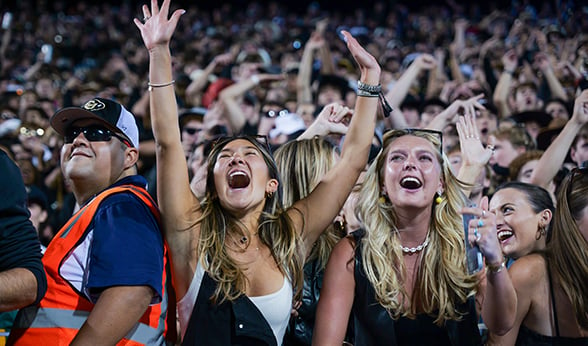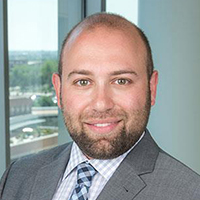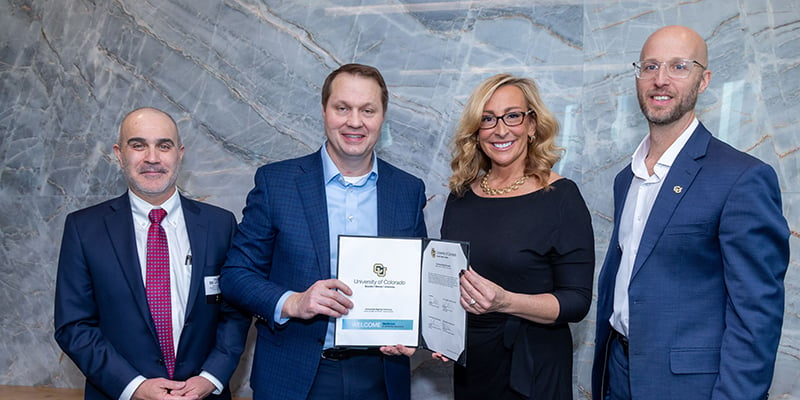Let’s start with the basics. What decibel (dB) levels can an individual’s ears take before they should consider wearing protection?
Even very short exposures to very high-level sounds (louder than 132 dB) can cause permanent hearing loss for some people. Sounds like gunshots and firework explosions can cause immediate damage to the ear. However, being around lower-level (but still loud) sounds for an extended period can also injure the sensitive hair cells in the ear. Exposure to 85 dBA (decibel level adjusted for human ears), about the sound level of a lawn mower, for eight hours per day can put a person at risk for hearing damage. As sound gets louder, safe exposure times get shorter.
You can monitor your sound exposure using sound-level meters or apps that use your phone as a sound-level meter. The NIOSH (National Institute for Occupational Safety and Health) SLM app for iOS works quite well to show you exposure levels. You can even use your Apple watch’s Noise app to see the level of sound around you.
According to the CDC, the noise levels at football games can reach up to 100 decibels. How can that impact your hearing in the long and short term?
It’s common for noise levels in professional football stadiums to exceed 100 dB. At that level, you have only about 15 minutes of safe listening before your risk for hearing loss increases. In the short term, football games often cause temporary hearing loss and ringing in the ears (just like you may experience after a loud concert). In the long term, this type of injury slowly damages the hair cells of your inner ear.
Generally, a single game isn’t loud enough to cause permanent damage to the ears, but people who attend multiple games are at a greater risk for noise injury to the ear.

Women celebrate loudly at the recent annual showdown between CU Boulder and CSU, where the Buffs came out on top after a close football game.
|
Can loud noises at sports events cause other issues regarding the ears and hearing?
Loud sound exposure can cause injury to the ears that result in permanent ringing in the ears, decreased tolerance of loud sounds or distortion of sound in the ear. These can make it challenging to sleep or understand conversations.
If your ears are damaged from attending loud events, can they ever recover?
Noise exposure from recreational activities is on the rise. We see more and more patients coming in with hearing loss from concerts, sporting events, firearm use and other noisy hobbies. Unfortunately, once the damage is done, there’s no fixing it. When inner ear hair cells are damaged, they do not regrow, and we have no medical treatment for most hearing problems. For patients with significant hearing loss from noise, hearing aids can help them to hear better, but there is no medication or surgery to “fix” the ear.
What kind of hearing protection should fans be wearing at football games and other loud events?
Any type of hearing protection can be a fine choice – earplugs or earmuffs can be used. The important thing is to put them in properly to block out noise. Also remember that that earphones are not effective hearing protection. For people who want to have a conversation while at the game, they might prefer hearing protection designed for listening to music. Custom hearing protection is available from your audiologist for people who spend a lot of time in noisy places or around loud music as well.
For children, earmuffs are usually the easiest and safest choice. We believe that the young ears of small children are more vulnerable to loud noise, so protecting their ears is extra important. Child-sized earmuffs can be found online or in many sporting goods stores.
What would you tell people who say that wearing hearing protection to loud events ruins the experience?
If you feel like the earplugs are interfering with your experience, it’s possible you’re wearing the wrong ones for you. Choose earplugs that are comfortable to wear and block out some sound. If earplugs block out too much sound, you may feel disconnected to the event. Try earplugs for musicians. Earplugs like the Etymotic Research ER20xs can reduce loud music levels without muffling the sound as much as other earplugs. The best earplugs are the ones you want to wear and feel comfortable in.
Is there anything you want to add?
Noise injury happens slowly over time. The more time you spend in loud environments, the more it wears on your ear. Don’t forget that sound exposure adds up over time. If you mow the lawn before going to the football game, you’re just increasing your sound exposure. If you work in a noisy job, you may have even less “safe time” for those fun noisy activities. Fortunately, hearing injuries from loud sounds are 100% preventable. Take care of your ears so you can hear for a lifetime.
All photos by Glenn Asakawa, University of Colorado Boulder.






